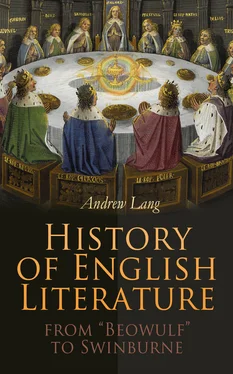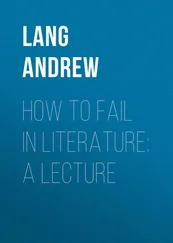The subject is an episode in the mediaeval legend of the Siege of Troy, as it was embellished on the lines of the pseudo-Dares and the pseudo-Dictys, by Benoît de Sainte-Maure, then by Guido de Colonna, and then by Boccaccio in the "Filostrato". The last gives Chaucer his starting-point; out of 8239 lines, 2583 are reckoned to be translated from Boccaccio, while there are borrowings from Petrarch, and much moralizing is rendered out of the prose of Boëthius, whom King Alfred translated into Anglo-Saxon, and Chaucer into the prose of his own time. Chaucer uses his materials as he pleases, greatly expanding, transposing, and omitting. Almost all his own is the character of Pandarus, who, in Homer, is merely notable for having broken a solemn truce by wounding Menelaus with an arrow. Boccaccio made him a young cousin of Criseyde, who, in the mediaeval legend, stays shamefaced in Troy, while her father, Calchas, deserts to the Greeks. Troilus, scarcely mentioned by Homer, is the brother, and in battle almost the equal of Hector. Troilus, though he had scoffed at love, is smitten by the eyes of Criseyde, and is on the point of dying without avowing his passion, when Pandarus, whom Chaucer makes the uncle of Criseyde, acts vigorously as go-between, and saves the life of Troilus by bringing the pair together. Pandarus is a good-natured but the reverse of a scrupulously delicate friend and uncle. Nevertheless, a conscience he has, in his way, and lectures Troilus at length on the infamy of men who boast of their victories in love, and of men who play his own part from any lower motive than kindness and pity.
For thee am I becomen,
Betwixen game and ernest, swich a mene
As maken wommen unto men to comen:
Al sey I nought, thou wost wel what I mene.
Pandarus has a conscience, to this extent, and it is to be presumed that he did not go beyond the mediaeval idea of what a gentleman might do to help a friend in love. Yet "he will be mocking," and his conduct is as remote from our ideas of honour, as from those of the heroic Greeks and Trojans themselves. Shakespeare has debased the Pandarus of Chaucer in his treatment of the same character in "Troilus and Cressida".
Criseyde herself, granting the ideas of Chaucer's time about love, is an honourable and most winning lady, the soul of honour (she wears widow's weeds for her father's shame), but she has not the faintest idea of marrying her lover.
In the beautiful, the magical story of "The Vigils of the Dead," in the mediaeval "Miracles of Our Lady," we meet a most devout and pious damsel, whose views are precisely those of Criseyde. No modern novelist could treat the struggle of Criseyde with her passion more psychologically and more delicately, and none so charmingly as Chaucer has done.
We all see Criseyde, so young, gay, and winning, with the eyes of Troilus; and Troilus, brave, gentle, courteous, and modest, with the eyes of Criseyde. She, learning his love from Pandarus, and deeply pitying him, sees him ride past from the battle, his helmet hewn, his shield shattered with sword strokes, the people welcoming him, and her love outruns her pity. It must be confessed that the manœuvres of Pandarus are told at very great length. The poet has all our sympathy when he cries:—
But flee we now prolixitee best is,
For love of God; and lat us faste go
Right to th' effect.
When he does come to the point it is in a scene where delicacy tempers passion.
Considered alle thinges as they stode,
No wonder is, sin she dide al for gode,
trapped by Pandarus, and yielding to love and pity. Assuredly Criseyde seemed so true a lover that, like Queen Guinevere, she should have "made a good end". But as she must pass to her father in the Greek camp, being exchanged for Antenor, the end came which all the world knows, and which she foreknew.
Allas, of me, unto the worldes ende,
Shal neither been y-writen nor y-songe
No good word, for thise bokes wol me shende.
O, rolled shal I been on many a tonge!
Destiny and Diomede prevailed, but Chaucer speaks of false Criseyde as tenderly and chivalrously as Homer speaks of Helen.
Ne me ne list this sely womman chyde
Ferther than the story wol devyse.
Hir name, alias! is publisshed so wyde,
That, for hir gilt it oughte y-now suffyse.
Had Chaucer left to us nothing but "Troilus and Criseyde," he would have given assurance of a poet so much greater than any English predecessor that the difference is one of kind, not of degree. Chaucer is our first poet of great and various genius.
Space being limited, we can only say that "The House of Fame" (1383) is much influenced by Dante, while, even in modelling himself on Dante, Chaucer gives play to his natural jollity and humour. Dante was never jolly. The poem in rhyming couplets of eight syllables shows Chaucer borne heavenwards by an eagle, like a middle-aged Ganymede, to Jove's House of Fame. He addresses the eagle with charming banter, and the bird tells him that he is to have a holiday, for all day he sits "at his reckonings" in the Custom House, and, when he returns home
also domb as any stoon
Thou sittest at another boke.
This was just before the spring of 1385, when Chaucer was allowed to have a deputy. This may have been granted at the request of the Queen, Anne of Bohemia; and, if she did not ask Chaucer to write his next work, the "Legend of Good Women," as counterbalancing the naughty Criseyde, he may have chosen the subject in gratitude. It concerns ladies who were true lovers; and this book Alcestis, who gave her life for her lord's, bids Chaucer present to the Queen. If he meant to celebrate nineteen of St. Cupid's Saints, he tired of his work, and tells only of ten, of whom Cleopatra and Medea are less than saintly. Boccaccio's book "On Famous Ladies," and Ovid, on Heroines, gave him hints and materials; he also uses Ovid's "Metamorphoses," the "Æneid," and other sources of information. He is extremely severe on male flirts.
Have at thee, Jasoun I now thyn horn is blowe!
but, far from being prolix, he merely gives the briefest summary possible of Medea's case, and leaves out almost the whole of the wonderful romance. He bids Theseus "be red for shame," as the deserter of Ariadne, but here again he is very brief, and leaves Ovid to tell the tale.
As all the stories are of man's cruelty and all the complaint of the women (who usually die forsaken), is
Oh, do not leave me!
the poet felt that the thing was like the tragedies of his monk in the "Canterbury Tales"—was becoming stereotyped, and he left off in the middle of a story. The poem is in "heroic" measure, and Chaucer's command of this practically new instrument is perhaps the main merit of the book.
Chaucer's aim, in the "Canterbury Tales," in which most readers begin to study him, though a great part of the book belongs to his late maturity, was to be universal: to paint all his world, to appeal to every taste, from that of the lovers of the broadest and coarsest humour (as in the Miller's and the Reeve's Tales), to that of devout students of saintly legends (the Man of Law's, the Second Nun's, and the Prioress's Tales). In the Prologue to the "Canterbury Tales," and in the discourses of the Pilgrims, he is entirely English, the mirror of his own people. We are in a throng of Shakespearean variety, while their talk is dramatically appropriate; each speaks in character, though the "Wife of Bath's Tale," for example, is far more philosophic, being a reply in part to St. Jerome's praise of celibacy, than anything that we are to expect from Dame Quickly, or from Scott's Mrs. Saddletree.
The Prologue and the conversations of the pilgrims are the thoroughly English work of Chaucer, in the maturity of his genius. So are the humorous pieces, the Wife of Bath, the Reeve, and the Miller, and that striking contrast with all these, the Knight's Tale, a noble masterpiece of true chivalry, which was composed in another form, in stanzas, and was again refashioned in couplets of ten syllables, before the idea of the pilgrimage occurred to the poet. 1
Читать дальше












